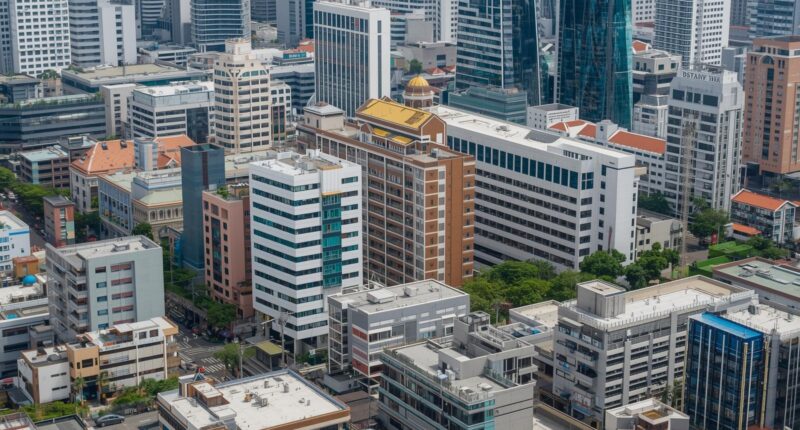A Guide to Buying Property in Bangkok
Bangkok’s real estate market is one of the most active in Southeast Asia, attracting both local buyers and international investors. With its combination of affordable luxury condominiums, high rental yields, and ongoing infrastructure development, the city presents exciting opportunities. However, buying property in Bangkok requires careful planning and an understanding of Thai property laws.
Why Buy Property in Bangkok?
Bangkok offers unique advantages for investors and homebuyers alike:
-
Strong rental demand from expats, students, and tourists.
-
Growing infrastructure such as new BTS and MRT lines that increase property values.
-
Affordable prices compared to major cities like Singapore, Hong Kong, or New York.
👉 If you’re exploring international real estate, check out our guide on How to Navigate Bangkok Real Estate Market.
Key Property Types Available
Condominiums
The most popular option for foreigners since they can be fully owned under Thai law (up to 49% of units in a building). Condos offer amenities like pools, gyms, and security services.
Apartments
Usually rented rather than purchased, but they are a popular option for those who want to test the market before buying.
Houses and Land
Foreign ownership of land is restricted. Foreigners can lease land for up to 30 years or invest through a Thai company.
Steps to Buying Property in Bangkok
1. Research Prime Locations
Areas like Sukhumvit, Sathorn, and Silom are popular among expats, while Riverside offers luxury living. Properties near BTS and MRT stations have the best long-term appreciation potential.
2. Understand Foreign Ownership Laws
Foreigners cannot directly own land but can own freehold condominiums. Always verify that the unit is within the foreign ownership quota before buying.
3. Hire a Lawyer
A reputable local lawyer will help review contracts, perform due diligence, and ensure your investment complies with Thai property laws.
4. Secure Financing
Most foreigners pay in cash, but some banks and international institutions offer financing options. Be prepared for stricter requirements than Thai nationals.
5. Transfer Ownership
The final step involves registering the property at the Land Department, paying applicable taxes, and securing the title deed.
Important Considerations
-
Developer Reputation: Choose established developers with a proven record.
-
Maintenance Fees: Condominiums charge monthly fees for upkeep of shared facilities.
-
Taxes and Fees: Be aware of transfer fees, withholding tax, and stamp duties.
Final Thoughts
Buying property in Bangkok can be a profitable investment if done carefully. By focusing on prime locations, working with professionals, and understanding the legal framework, you can secure a property that delivers both lifestyle and financial returns.
👉 For global investors, explore our guide on Why Invest in New York Real Estate Now to compare opportunities between East and West.









